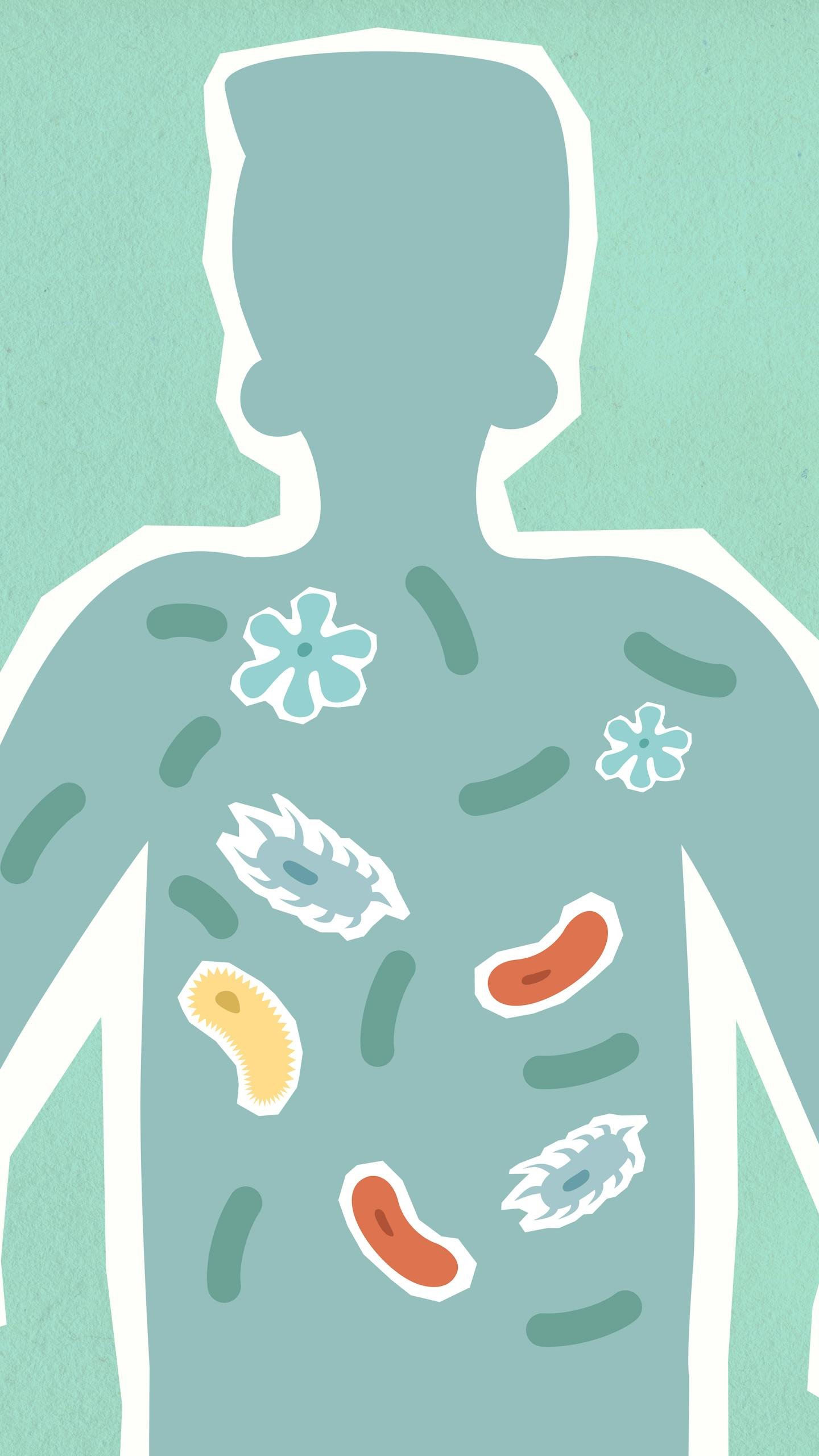The Impact of Fitness, Environmental Exposure, and Nutrition on Gut Microbiome Health: Why It’s Vital to Prioritize Your Gut
Did you know your gut health impacts almost every part of your well-being, from digestion to mental clarity? Inside your gut lives a whole world of microorganisms—bacteria, fungi, viruses, and more. Together, these make up your gut microbiome. Taking care of your gut microbiome is essential for good health. But did you know that your exercise routine, nutrition, and even exposure to hot and cold environments can influence your gut health?
Let’s explore how fitness, weight lifting, cardio, flexibility exercises, along with cold and heat exposure, and the foods you eat, all affect your gut microbiome. We’ll also discuss why taking care of your gut is key to a healthier, longer life.
What Is the Gut Microbiome and Why Is It Important?
The gut microbiome is a collection of trillions of microorganisms living in your digestive system. This group of bacteria helps your body digest food, produce vitamins, and even fight off harmful germs. The healthier and more diverse your gut microbiome is, the better it can support your overall health.
If your gut microbiome gets out of balance (a condition called dysbiosis), it can lead to many health problems like digestive issues, obesity, and even mental health disorders. That’s why keeping your gut microbiome healthy is so important.
How Fitness Affects Your Gut Microbiome
Weight Lifting and Strength Training
Lifting weights doesn’t just build muscle—it’s great for your gut too! Research in the Oxidative Medicine and Cellular Longevity shows that strength training increases the diversity of the gut microbiome. The more diverse your gut bacteria, the better your body can handle digestion and reduce inflammation. Lifting weights also boosts beneficial gut bacteria, like Akkermansia muciniphila, which supports the gut lining and helps reduce inflammation.
Additionally, the physical effort of strength training releases certain by-products (like lactic acid) that can feed beneficial gut bacteria, helping your gut stay balanced and healthy.
Flexibility Exercises and Yoga
Flexibility exercises, such as yoga, do more than just stretch your muscles—they can also help your gut function better. Yoga has been shown to improve digestion by reducing bloating and helping food move through the digestive system more smoothly. It can also lower stress, which is a major factor in gut health. High stress can lead to an overproduction of cortisol, a hormone that can disrupt the balance of your gut bacteria.
Yoga promotes relaxation, which activates the parasympathetic nervous system—often called the “rest and digest” system—encouraging better digestion and overall gut health.
Cardio and Aerobic Exercise
Cardio workouts, such as running or cycling, also play an important role in maintaining gut health. Aerobic exercises help oxygenate tissues and organs, including your gut. This promotes the growth of beneficial bacteria and increases the production of short-chain fatty acids (SCFAs), which are crucial for reducing inflammation and keeping your gut healthy.
Research in the BMJ Gut has shown that cardio can improve the balance between two major bacterial groups in your gut—Firmicutes and Bacteroidetes. A healthy balance between these bacteria is linked to better metabolism, lower body fat, and improved digestive health.
How Cold and Heat Exposure Influence Gut Health
Cold Exposure
Cold exposure, like ice baths or cold showers, can positively affect the gut microbiome. Studies in Advances in Nutrition Journal show that cold exposure helps boost the growth of beneficial bacteria such as Lactobacillus and Bifidobacterium, both of which support gut health by improving digestion and boosting the immune system.
Cold exposure also activates brown fat, which produces anti-inflammatory compounds. These compounds help keep your gut lining strong and reduce inflammation, benefiting your overall gut health.
Heat Exposure
Heat exposure, such as through sauna use or hot baths, can also improve your gut health. The heat helps boost circulation, allowing more nutrients and oxygen to reach the gut. Saunas have been shown to help reduce inflammation, which benefits gut health.
Moreover, heat exposure can increase gut microbial diversity, which is essential for a balanced, healthy gut. The more diverse your gut bacteria, the better your body can respond to stress, process food, and prevent gut-related diseases.
How Nutrition Affects the Gut Microbiome
Whole Foods for Gut Health
A healthy, balanced diet is crucial for a strong gut microbiome. Whole, nutrient-rich foods—such as fruits, vegetables, whole grains, and legumes—provide the fiber your gut bacteria need to thrive. These fibers act as prebiotics, feeding the good bacteria in your gut.
Eating a variety of plant-based foods also boosts the production of short-chain fatty acids (SCFAs), which help maintain a healthy gut lining and reduce inflammation.
Fermented Foods and Probiotics
Fermented foods such as yogurt, kefir, kimchi, and sauerkraut are excellent for gut health. These foods introduce probiotics, which are live beneficial bacteria, into your gut. Probiotics can help restore balance to your gut microbiome and improve digestion.
Protein and Fat: Their Role in Gut Health
A diet that includes lean protein, such as chicken, eggs, or plant-based proteins, can support gut health. However, be cautious about consuming too much protein, particularly from processed meats, as it can lead to an imbalance in gut bacteria.
Healthy fats, such as omega-3s found in fish, flaxseeds, and walnuts, can also benefit your gut by reducing inflammation and promoting the growth of good bacteria like Bifidobacterium.
Avoid Processed Foods and Artificial Additives
Processed foods, artificial sweeteners, and preservatives can negatively affect your gut microbiome. These additives can promote the growth of harmful bacteria, leading to gut imbalances. Eating too many processed foods can also lower the diversity of gut bacteria, increasing the risk of conditions like IBS and obesity.
Why Gut Health Matters
Taking care of your gut health is essential for your overall well-being. By incorporating a combination of fitness—like strength training, flexibility exercises, and cardio—along with exposure to hot and cold environments and a healthy diet rich in whole foods, you can positively influence your gut microbiome. A balanced gut can improve digestion, boost immunity, and reduce the risk of chronic diseases.
Investing in your gut health is investing in your long-term health. With simple lifestyle changes, you can take control of your gut microbiome and, in turn, your overall health.
References
- Monda V, Villano I, Messina A, Valenzano A, Esposito T, Moscatelli F, Viggiano A, Cibelli G, Chieffi S, Monda M, Messina G. Exercise Modifies the Gut Microbiota with Positive Health Effects. Oxid Med Cell Longev. 2017;2017:3831972. doi: 10.1155/2017/3831972. Epub 2017 Mar 5. PMID: 28357027; PMCID: PMC5357536.
- Clarke SF, Murphy EF, O’Sullivan O, Lucey AJ, Humphreys M, Hogan A, Hayes P, O’Reilly M, Jeffery IB, Wood-Martin R, Kerins DM, Quigley E, Ross RP, O’Toole PW, Molloy MG, Falvey E, Shanahan F, Cotter PD. Exercise and associated dietary extremes impact on gut microbial diversity. Gut. 2014 Dec;63(12):1913-20. doi: 10.1136/gutjnl-2013-306541. Epub 2014 Jun 9. PMID: 25021423.
- Cuevas-Sierra A, Ramos-Lopez O, Riezu-Boj JI, Milagro FI, Martinez JA. Diet, Gut Microbiota, and Obesity: Links with Host Genetics and Epigenetics and Potential Applications. Adv Nutr. 2019 Jan 1;10(suppl_1):S17-S30. doi: 10.1093/advances/nmy078. PMID: 30721960; PMCID: PMC6363528.
- Valdes AM, Walter J, Segal E, Spector TD. Role of the gut microbiota in nutrition and health. BMJ. 2018 Jun 13;361:k2179. doi: 10.1136/bmj.k2179. PMID: 29899036; PMCID: PMC6000740.







